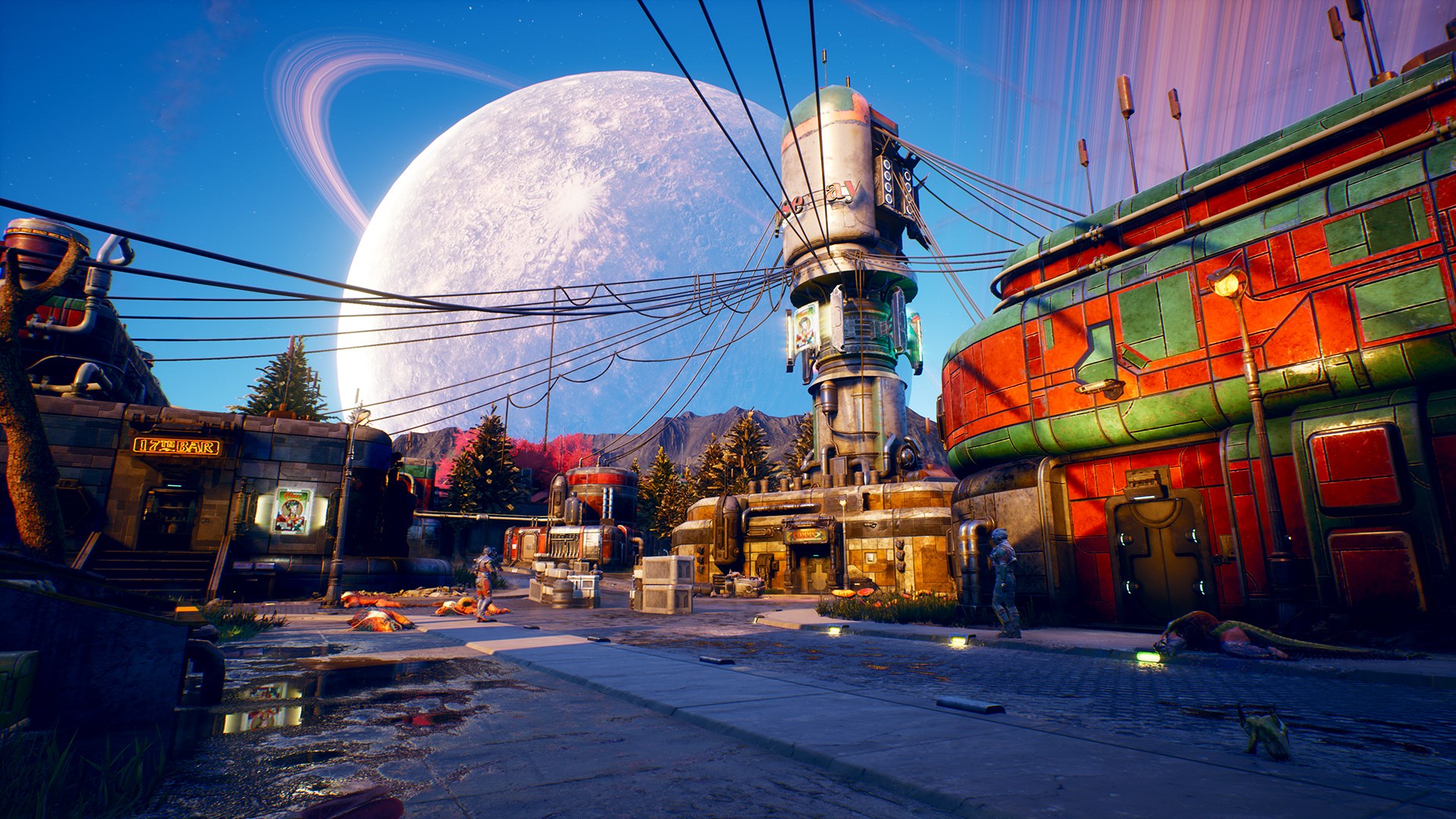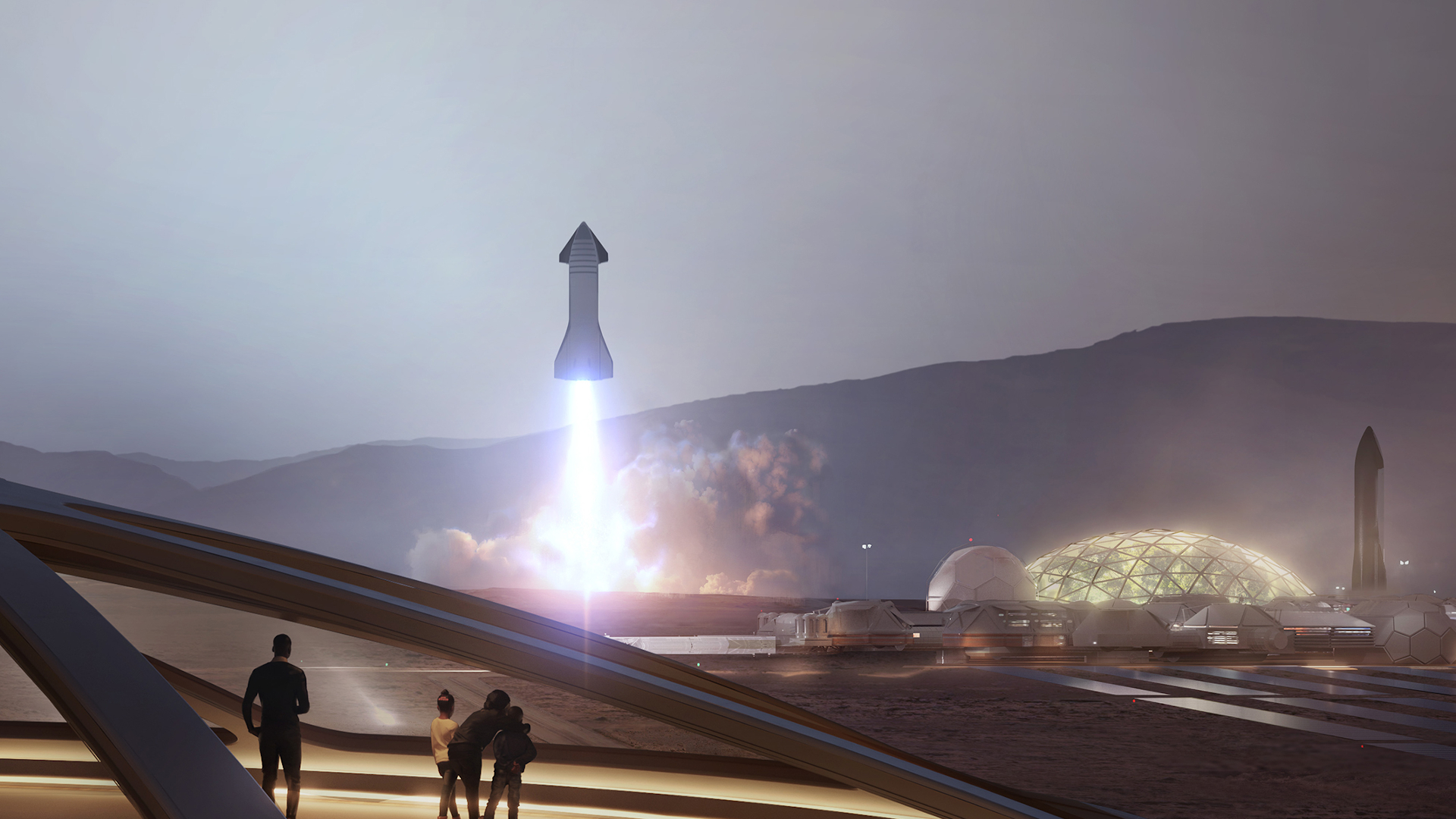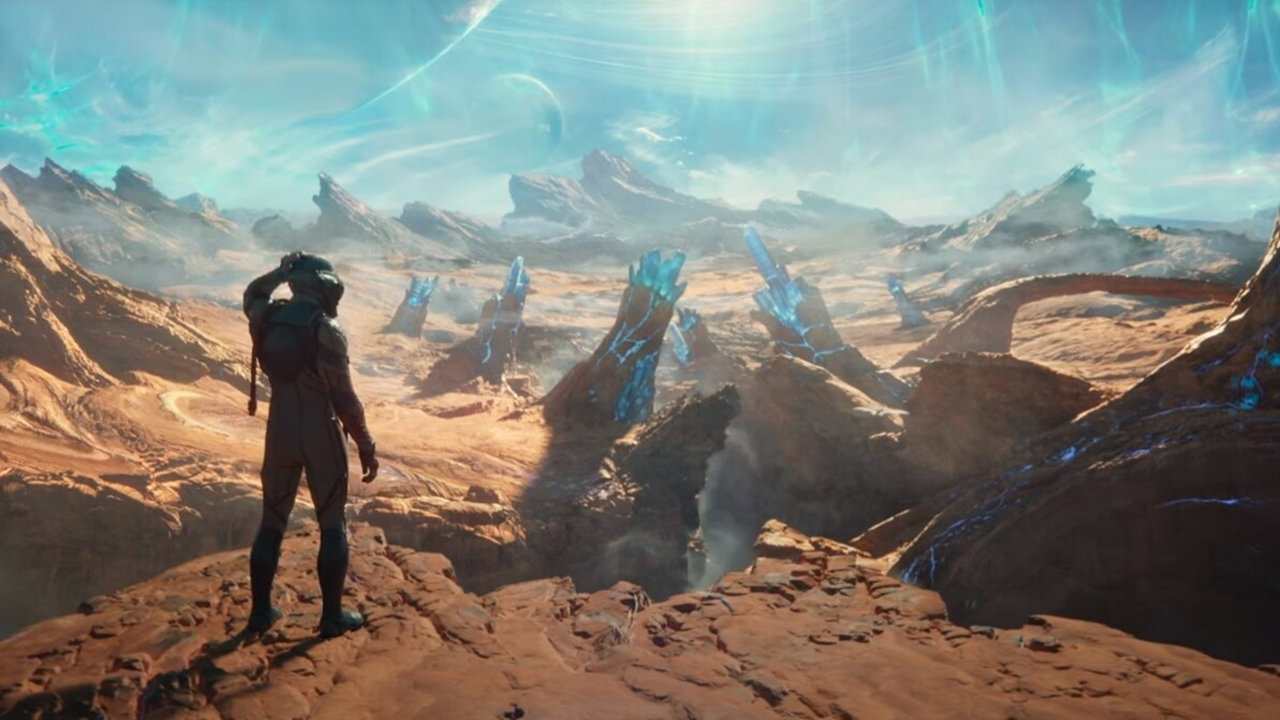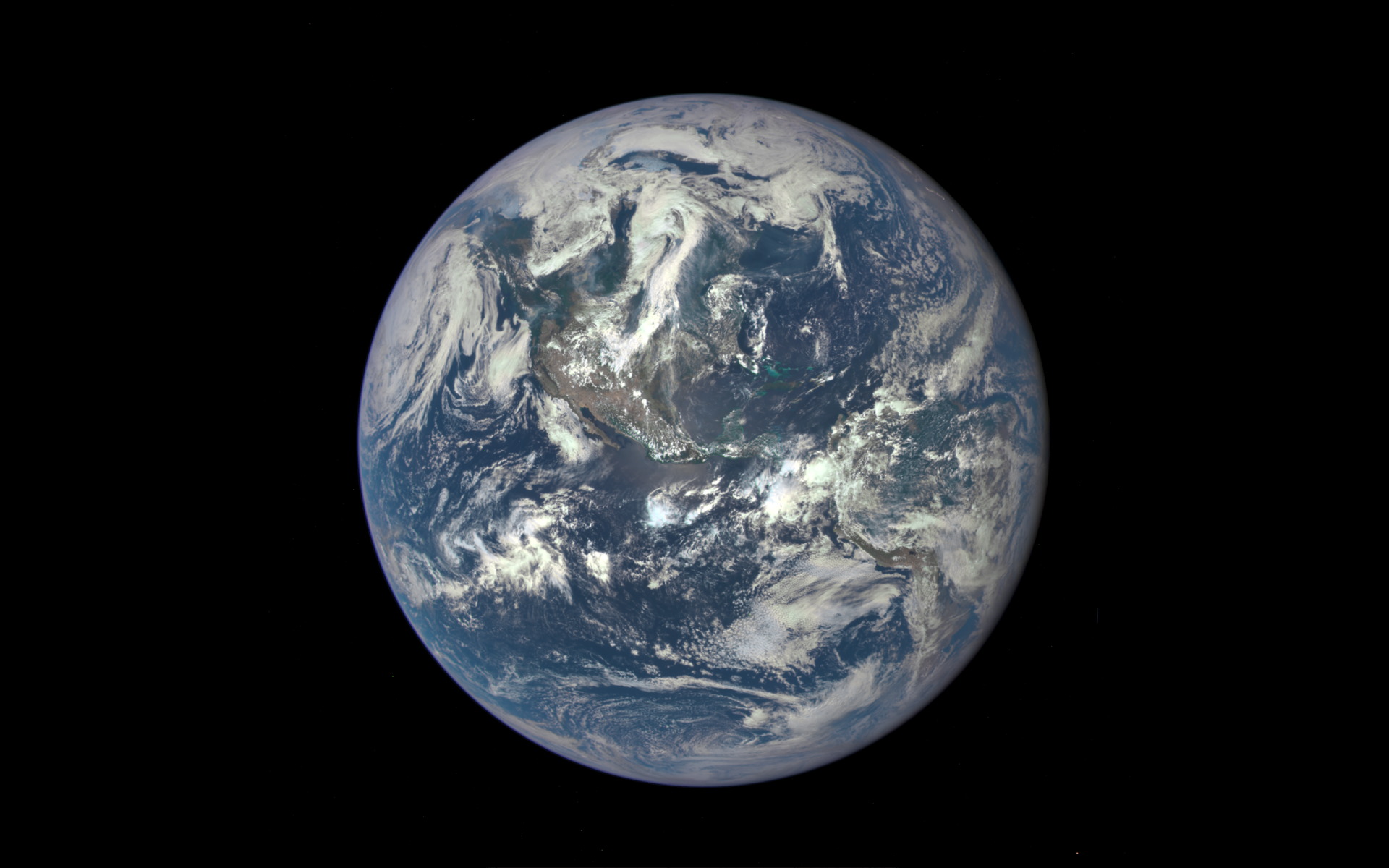The Outer Worlds is a warning of the corporate space age we're barreling towards
Obsidian's dark satire is a warning that leaving billionaires in charge of our expansion to the stars might not be the best idea, which is a shame because it's exactly what we're doing.
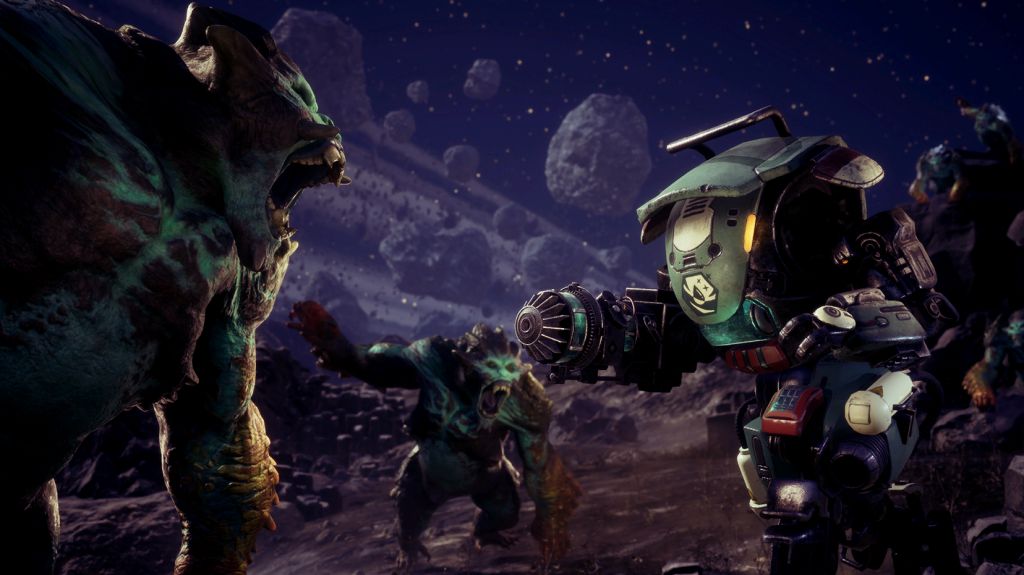
Breaking space news, the latest updates on rocket launches, skywatching events and more!
You are now subscribed
Your newsletter sign-up was successful
Want to add more newsletters?

Delivered daily
Daily Newsletter
Breaking space news, the latest updates on rocket launches, skywatching events and more!

Once a month
Watch This Space
Sign up to our monthly entertainment newsletter to keep up with all our coverage of the latest sci-fi and space movies, tv shows, games and books.

Once a week
Night Sky This Week
Discover this week's must-see night sky events, moon phases, and stunning astrophotos. Sign up for our skywatching newsletter and explore the universe with us!

Twice a month
Strange New Words
Space.com's Sci-Fi Reader's Club. Read a sci-fi short story every month and join a virtual community of fellow science fiction fans!
What if you could just escape, not just to a new city or a new country, but a new planet? Would that be far enough away from it all? Would you finally be free? Obsidian Entertainment's 2019 video game "The Outer Worlds" asks and answers that very question - and it might make you glad you never fled to that Martian settlement after all…
Set in the distant, human-settlement-filled solar system of Halcyon, "The Outer Worlds" is a highly acclaimed first-person shooter available on PS4/5, Windows, Xbox One/Series X/S and Nintendo Switch. You play as a character known only as 'The Stranger', released from stasis after your ten-year journey through space from Earth to Halcyon. Unfortunately, you are immediately informed that there's been a slight administrative error and the shipment of new settlers you were supposed to be a part of got lost in delivery - in fact, you're several decades late and the shiny new settlement you were promised is … well let's just say it's more dystopian than you were expecting.
In boarding the ship to escape Earth and start a new life in the stars, each settler must sign away their own and their descendants' souls to one of these corporations, effectively making them property of whichever company leased them their spot on the vessel. While "The Outer Worlds" is a dark and satirical work of fiction, it does raise an excellent point about the future of mankind in space; who's paying for it? When the only currently known plans to build permanent human settlements on other planets are coming from private corporations rather than government-funded organizations like NASA, maybe we should be asking what exactly is in it for them?
- Best space games: Outer Wilds, Kerbal Space Program, more| Space
- Best space exploration games | Space
- Upcoming space games: Starfield, Star Wars, Mass Effect 4 | Space
It's not entirely out of the question that space travel will become a possibility for civilians within the next 100 years - but whether it becomes financially accessible is an entirely different matter. In the case of SpaceX, the goal is to offer commercial space tourism to Mars and the moon, with plans to build a settlement on Mars in the next few years. However, once the novelty of having your very own Martian bungalow wears off, would it bring the freedom and adventure Musk promises?
SpaceX's mission statement page opens with a quote from Elon Musk stating that "You want to wake up in the morning and think the future is going to be great - and that's what being a spacefaring civilization is all about. It's about believing … the future will be better than the past". The idea of running away to an interplanetary settlement would undoubtedly be appealing to a lot of people - you could leave that job that's making you miserable, you could start a new life, have a new name, get acquainted with an entirely new lifestyle under a new atmosphere. But if science fiction has taught us anything, it's to be wary of the aspirations of large corporations.
- SpaceX's Mars Settlement Plan: How Elon Musk Plans to Build a Million …
- Mars Settlement Would Be a Hedge Against World War III, Elon Musk ...
Now, we're not suggesting that the corruption and endless bureaucracy of "The Outer Worlds" Halcyon is destined to happen in the real world, but the satirical adventure game is meant as a cautionary tale of what could go wrong if private companies are given too much control over people's lives, right down to the air they breathe.
In an interview with CNN Business, Michael Meyer, the lead scientist for NASA's Mars Exploration Program, said that "the first 100 years that humans have a presence on Mars, the economic situation will be dubious". So, right from the off you're looking at entrusting your future, and even your life, to a company might end up going broke while you're stuck out on Mars.
Breaking space news, the latest updates on rocket launches, skywatching events and more!
Spaceflight companies like SpaceX provide plenty of information on how and where they will manufacture the vessels needed to transport would-be settlers. However, beyond some diagrams of rockets and vague quotes about 'believing in the future', there isn't a great deal of clarity on what they plan to do once the settlement is established, or why they want to build it in the first place.
According to an interview given in 2013, SpaceX founder Elon Musk's initial goal was to build a greenhouse (dubbed Mars Oasis) on our neighboring planet, however the SpaceX project pivoted towards more commercial spaceflight goals when Mars Oasis proved too costly to be viable. While Musk's initial goal may be to further the progress of humanity, it is evident that the funding needed to sustain a Mars settlement will be astronomical. In other words, the engineers at SpaceX would need to find a way to ensure that the settlement would be able to offer some value to investors back on Earth.
On the SpaceX website, the company explains why they chose Mars over other planets, stating that the planet has decent sunlight', shows potential for growing plants, and has considerably weaker gravity on earth, making lifting heavy objects a simple task. These conditions could potentially indicate plans for SpaceX to have a large focus on the development of agriculture to offset the cost of importing food to Mars from Earth. On the exporting front, Martian ore is high in natural minerals including iron, titanium, lithium - finite resources which the Earth will eventually run out of. If SpaceX were to be profitable to investors, it would likely need mining and agricultural industries in order to generate income.
This brings into question a number of factors about what would be expected of potential settlers moving to the Red planet. After all, many of us who dream of escaping our hum-drum lives on planet Earth don't dream of working on a potato farm or down a mine shaft, even if there is a free rocket ride in it for us. To entice people to leave their friends and family on Earth for a manual labor job, SpaceX would likely need to sweeten the deal for those individuals.
Would the SpaceX settlement be treated like an outpost, where workers would be stationed for a period of time (like an oil rig) while carrying out a short term contract? Perhaps SpaceX would offer subsidized accommodation to those joining their manual workforce on Mars, similar to the idea of 'company towns' like Cadbury's Bournville village - making the move from Earth to Mars more affordable for would-be-settlers.
All of these systems are dependent on both SpaceX making good on their promises to provide the benefits, and on the employees surviving the first few months of their time on Mars in order to reap those benefits. With the company's previous enthusiasm about rocket launch failures and Elon's grim comments on the human cost of the mission, can we really be sure that early settlers heading to Mars on the promise of a better life will actually survive long enough to enjoy it?
Back in 2017, Musk commented that the first settlers to reach Mars should 'be prepared to die', comparing the first Martian colonies to explorer Ernest Shackleton's expedition to the Antarctic: "Going to Mars reads like that ad for Shackleton going to the Antarctic. You know, it's dangerous, it's uncomfortable, it's a long journey, you might not come back alive. But it's a glorious adventure, and it will be an amazing experience."
This view of the settlers on Mars being, for lack of a better word, expendable, is no anomaly when you compare the prospective treatment of workers here on Earth. Multiple employees of Tesla, the SpaceX owners other company, have complained of unsafe working conditions and exploitation. It's the same story over at Amazon, the retail giant owned by Blue Origin founder Jeff Bezos, with numerous reports of unsafe working conditions and worker deaths at Amazon warehouses.
On the other hand, the prohibitive cost of getting new workers to Mars means that companies can't afford to churn through them at the rate they do here on Earth, so it may well behoove companies to treat their staff better on Mars, at least in the early days of the settlement.
In creating "The Outer Worlds", Obsidian Entertainment aren't trying to tell us that settling space is a bad idea — for many of us, our defiant inner five-year-old is still confident that if we just got the chance, we could build a happy life for ourselves beyond the Milky Way. Instead, it's warning us about the dangers of corporate greed to hold so much power over the lives of everyone underneath that great big oxygen-filled dome (remember when they turn the air supply off in Total Recall?). Perhaps the almost cartoonishly unsafe and grim Saltuna Cannery in the game's first chapter, and its worn-down, miserable employees are a reminder that escaping Earth does not necessarily mean an escape from the brutality of corporate exploitation.
If life on Mars is going to be better than life on Earth, then we need to think critically about who is building that life for us, and whether it's really for progress, or just for profit. After all, maybe telling your five-year old self that you work a day job you don't like might be a bit depressing to imagine, but think how much worse it would be to have to tell them that yes, you did grow up to become a space traveler, but actually, living on Mars sucks way more than you thought it would.
The Outer Worlds 2 was announced during E3 2021, and it's coming to Xbox and PC at some point - we don't have a fixed release date for it yet. When it does arrive, we're sure it will have more grim warnings of the dangers of letting corporations control our destiny amongst the stars. In the meantime, check out The Outer Worlds on Xbox, PlayStation, Nintendo Switch, and PC.

Alice Flynn is a freelance writer and culture journalist based in Reading, UK. Having graduated from University of Birmingham with BA Hons in Drama & English Literature, she began her writing career by reviewing theatre before moving into the broader entertainment sector due to her love of sci-fi, horror and videogames. She covers film, stage, tv and video games, and has a keen personal interest in LGBTQ+, neurodivergent and women's stories. Her work on has been featured in publications including Conscious Being Magazine, AYoungerTheatre.com, Lost In Cult and Lay it Out.

